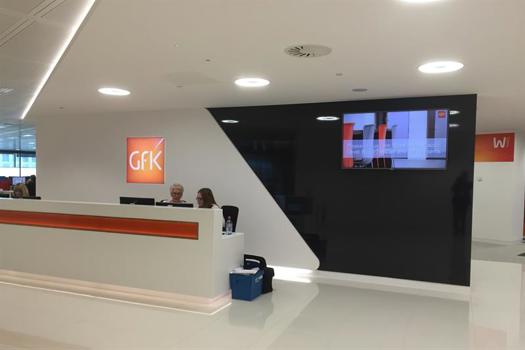The organisation
Customer acquisition and lead generation business MVF Global was founded in 2009 and has offices in both the US (Texas) and the UK (London). The firm provides IT platforms that help clients find customers and works across a broad range of sectors including automotive, financial services, pharmaceutical, travel and education.
In the past few years MVF has topped The Sunday Times’ Tech Track rankings for being the fastest-growing technology company in the UK, earned a Queen’s Award for Enterprise twice, been recognised in the American Inc. 5000 list, and in 2018 came second in The Sunday Times’ 100 Best Mid Companies to Work For list.
The challenge
When chief people officer Andrea Pattico joined in 2016 she quickly realised that the rapid rate of growth at the firm meant staff were moving up into management roles without the support they needed.
“A big part of our philosophy is being accountable to employees, and providing career opportunities, but around 66% of those moving into managerial roles were graduates who’d never had any experience managing people before,” she says.
“Our people were capable, but didn’t have the grounding they needed. All that existed at the time was a two-day managerial training course.”
This meant introducing a dedicated training programme was critical, she adds.
“What we quickly realised was that we needed a more comprehensive and ongoing form of development, ideally accredited too – to give people confidence,” Pattico says.
After enlisting support from various companies, including culture consultancy FizzPopBANG and coaching firm Coach Map, Pattico decided to design a bespoke management development academy for MVF.
The strategy
Rather than produce a short course that might quickly be forgotten, Pattico set to work creating an 11-module programme that took more of a “self-discovery” approach to learning than formal “talk ‘n’ chalk” lessons.
Each module was a day-long course, with pre- and post-module homework and exercises. One module was ran per month, meaning that the course would take almost a year in total.
“Each module was also slightly different from the norm,” adds Pattico. “Staff were consulted about what they wanted the course to cover, to best suit their needs, and we decided to focus on positives – with modules ranging from ‘how to set direction’ or ‘me the manager’ to ‘how to manage brilliant people’.”
Rather than focus on employees’ shortfalls, Pattico wanted the course to play to people’s strengths. “Often learning is based on working on what you’re bad at. We wanted to turn this on its head, to find out and support what people were good at. If there were areas people were weaker in we said that’s OK as we can find people who could support them,” she says.
“We decided we would have ‘allowable weaknesses’ because, when you think about it, people don’t need to be excellent at everything, and we’d help people be better at what they’re already good at.”
As part of this the course was designed with Strengthscope profiling, which scores people on several key strengths. The results of this are also followed up with one-to-one coaching.
Learners can pass or fail the course because each trainee is expected to deliver a confirmatory presentation to the executive team at the end of it, including outlining what their own 12-month growth plan should be.
The result
Since the course was first launched in the US and UK in 2017 (with US members flying over to join their UK peers), seven cohorts and 88 learners have gone through the process. A further 46 are, at the time of writing, currently awaiting the results of their learning.
“From a sheer ‘equipping people with the skills they need’ point of view, the results we’re seeing are amazing,” says Pattico, who warned bosses real results would only start appearing from year three.
“Already 26 learners have been promoted to head-of or director-level roles, while 55 have since been identified as future leaders. People report being much better able to handle the extra responsibility of their leadership roles, and are really flourishing.”
Retention of key talent has been another marker of success. “While some people have obviously left the business, it’s significant that only two of 26 people that left us since the programme launched were actually identified as potential future leaders,” she says.
“We’re finding people that have gone through the course demonstrate 1.5 years’ longer length of service than those who have not.”
So comprehensive was the course that the Institute of Leadership and Management has now accredited it, which broadly equates to Level 6 learning. And the wider business is reaping the rewards too.
“People are massively more confident, and this shows through in both staff surveys – where teams report their managers give them what they need – but also in ROI metrics, with overall staff attrition now down 11% because employees are happier, and feel supported by their managers,” says Pattico.
The development didn’t stop there, with the course continuing to evolve. Since the fourth cohort MVF has teamed up with coaching and mentoring company The OCM Group to create “connected learning communities” where people who learn together, from different departments or even nations, stay connected and share learning long after their modules have been completed.
And Pattico plans to take the programme further still. She is now working on a precursor ‘make me a manager’ course, which will prepare potential managers for the eventual 11-module management training course.
This piece appeared in the January 2020 print issue. Subscribe today to have all our latest articles delivered right to your desk









